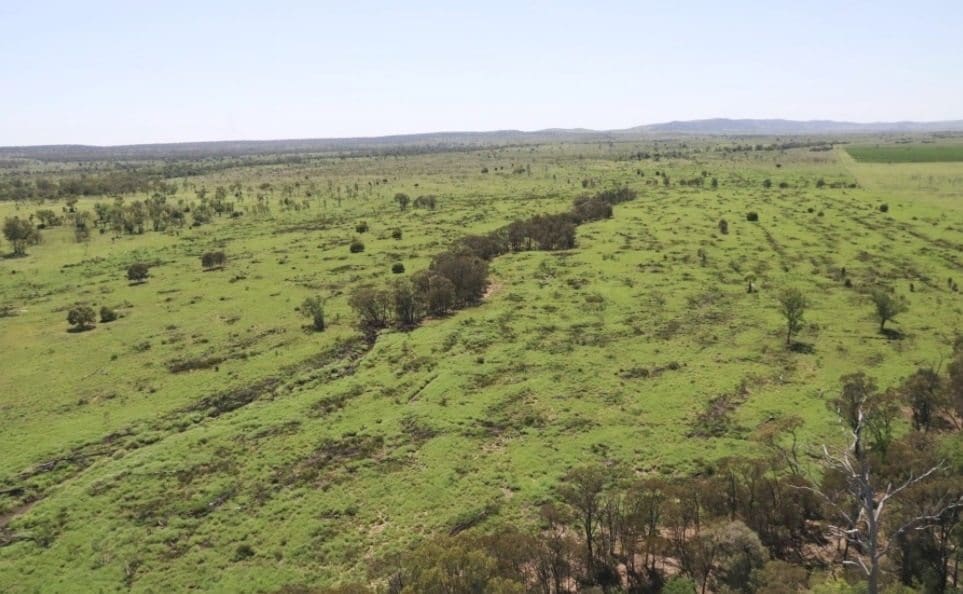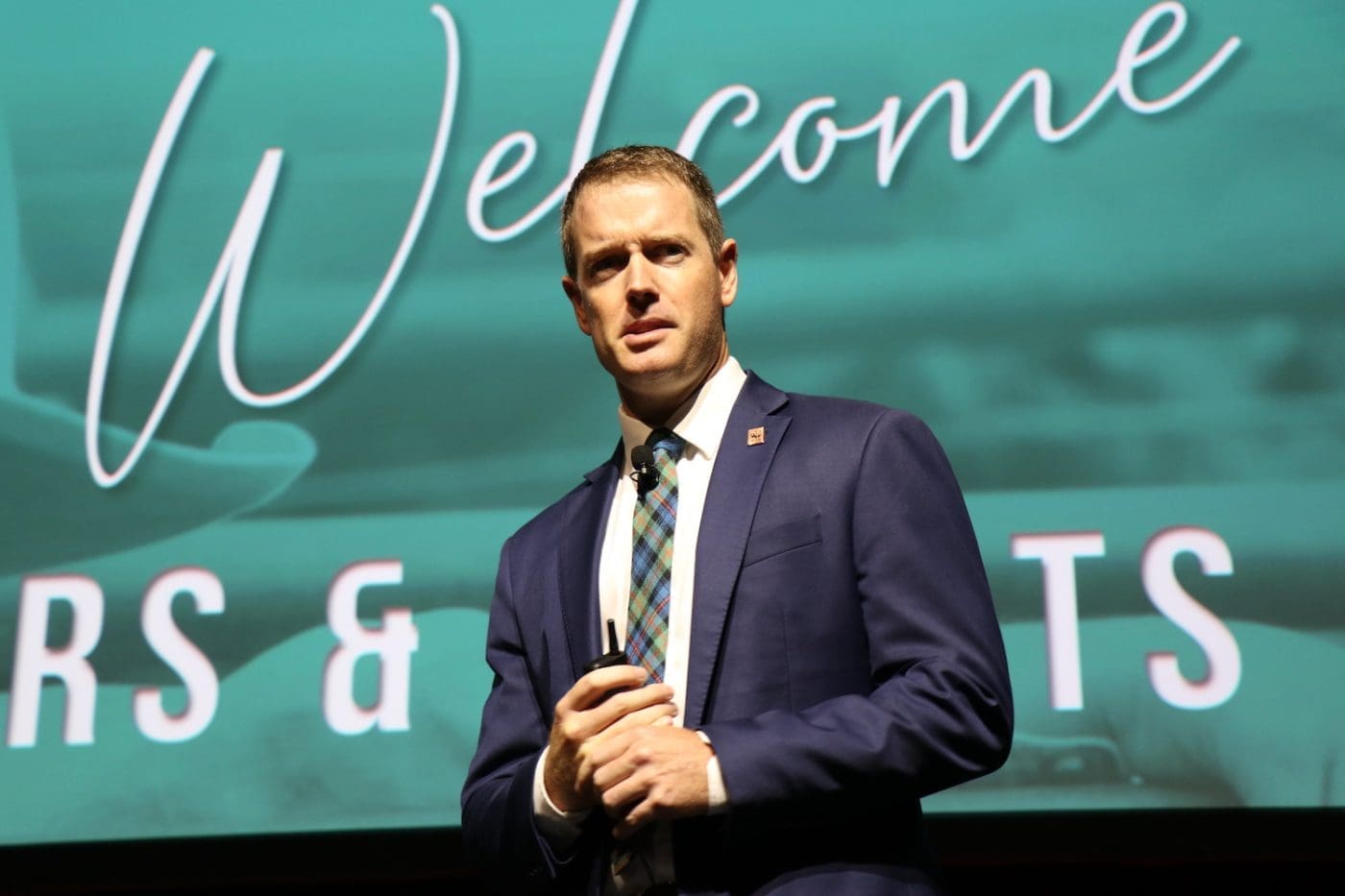WITH a wave of deforestation legislation coming for the cattle industry, it is worth taking a look at why it has become such a hot topic and whether new rules will have much of an impact.
 Europe is the first cab off the rank, with new import regulations coming into effect later this year requiring a list of products to prove they are not a result of deforestation – including meat.
Europe is the first cab off the rank, with new import regulations coming into effect later this year requiring a list of products to prove they are not a result of deforestation – including meat.
Many meat supply chains and banks are set to follow as they face international pressure to make sure they are not contributing to the elimination of high value rainforest.
A group of 50 beef industry representatives, including producers and processors, are working to make sure routine land management practices, like managing regrowth, are not caught in the crosshairs of deforestation legislation – with Cattle Australia to release the principles underpinning it’s deforestation definition at Beef 2024 in Rockhampton this week.
Former Global Roundtable for Sustainable Beef president and current executive committee member Ian McConnel said the key part of the definition will be a clear line between land management and deforestation.
“Beef production needs land management, not deforestation,” Mr McConnel said.
“Deforestation is the number one cause of biodiversity loss around the world and we need to recognise that. But I think with the right definition, deforestation-free beef should not have much of an impact on cattle production.”
Why are deforestation-free targets being set?
While Europe’s deforestation legislation is the only one with a looming deadline, company-related targets are coming in quickly behind it.
Last year, Westpac drew mixed responses when it became the first Australian bank to set a deforestation target saying it was going to have no deforestation-related lending by 2026.
McDonald’s had plans to make its supply chains free of deforestation by 2020 but struggled to implement the right set of rules to make it happen in an Australian context. Eventually representatives from the company travelled to Australia to meet with a group of Central Qld producers to create path forward. McDonald’s target is now for 2030.
Many other beef industry organisations – including Coles and Teys joint venture partner Cargill – are signed up to an initiative called Science Based Targets, which is making them to have a deforestation policy in place by 2025. JBS was signed up to the SBTi but had its targets removed.
Mr McConnel said the deforestation targets and legislation were different to previous environmental goals, like reducing emissions.
“Deforestation is more about de-risking, companies aren’t going to advertise it, they just don’t want to be associated with it,” he said.
“You are not going to see ‘deforestation-free’ on a label like you would with a carbon neutral claim.”
What is deforestation?
While deforestation is an emotive term and is often used in the same sentence as the Amazon rainforest, it has become used to describe land under management by Australian beef producers.
There are several internationally recognised definitions of “forest” – including the United Nations Food and Agriculture Organisation definition of land with higher than five metres and a canopy cover of more than 10pc, or trees able to reach those thresholds.
Environmental groups have been making claims about the beef industry’s targets using different definitions.
The Wilderness Society said it uses a definition from the Kyoto protocol, which is two metres high and crown canopy cover of 20 per cent. Under that definition the Wilderness Society says only 5pc of Qld beef producers are responsible for deforestation and 68pc of the state has been deforestation-free in the past five years.
Mr McConnel said overseas they are having trouble knowing how much to attribute deforestation to beef production.
“In areas like the Amazon, cattle are placed on newly cleared land to claim ownership, but the root cause is land speculation or eventually to convert the land to soy production,” he said.
Cattle Australia and its working group are hoping to provide a definition that strikes a balance of being clear and considers the unique Australian landscape.
“It’s just not feasible to compare Australia’s land management practices for beef production with other jurisdictions, so we need to develop fit-for-purpose, regionally specific indicators for global reporting that recognise our inherent ecological differences,” CEO Chris Parker told a conference earlier this year.
Will CA’s definition be accepted?
Once CA has released the beef industry’s definition of deforestation, it will then need to be assessed by the EU before it becomes part of the import legislation.
Mr McConnel said other industry groups had unsuccessfully tried to get on the front foot with deforestation definitions before.
“This work has been done by industry groups before, but for whatever reason the definitions have not been accepted,” he said.
“But given there are now guidelines from the EU and the SBTi, I can’t see this current definition that is in the works straying off the path too much. There is also a need for it now, whereas in the past we were trying to head something off.”
Mr McConnel said the EU had not been forward in creating the rules for its new legislation.
“I don’t really agree with the EU’s process of doing this, they have basically said ‘you have to do all the work, you have to set up the due diligence system. Then we won’t tell you if the due diligence system is good enough until we do a retrospective assessment and fine you if it’s wrong’,” he said.
“Ideally they would provide the baseline mapping and the methodologies for people to follow, but they haven’t.”
Import regulations facing pressure in EU
In Europe, the import regulations are starting to face some pushback with multiple media reports suggesting the EU could delay the timeline.
The continent is facing some serious issues with high inflation and concerns have been raised about the laws taking cheap food off the market. The poultry and pork industries have also raised concerns, with some of their important feed sources, mainly soy, being part of the regulations.
Europe’s environmental policies in general have been under pressure of late, with large-scale protests in some of the continent’s biggest cities forcing the European parliament to walk back some legislation.
Earlier this year, former UK politician and consultant George Lyon told Beef Central earlier this year that the environmental policies were becoming unpopular with the high inflation.
“All of a sudden consumers are saying ‘you are expecting us to pay more for our heating systems, more for electric cars and more for our food – we believe in net zero, but we are not going to pay for it’,” he said.
Mr McConnel said the pushback on the environmental policies was forcing the environmental groups to be more pragmatic.
“The environmental groups have had this carte blanche on setting and guiding policy in Europe for a while and that seems to be dissolving,” Mr McConnel said,
“I don’t think you will see a rapid move away from environmental ambition in Europe, but you might some more pragmatism in the policies.”
Deforestation definition still important
While there has been talk about delaying the import regulations, there has not been much talk about scrapping them altogether.
Mr McConnel said it was still important for the Australian industry to have its definition in place by the end of the year.
“I’m not sure the December deadline is set in stone, but as a country we should be aiming for it in case it is,” he said.
Europe’s environmental policies have trickled out to other parts of the world before and have clearly been done with the intention of influencing the world – like net zero emissions and renewable energy targets.
Mr McConnel said many other countries were drafting similar legislation.
“The UK follows the EU in a lot of cases, the US is drafting deforestation policy and history tells us that EU policies roll out,” he said.
“Being ready to handle the EU policy puts us in a good position to answer future market demands.”

